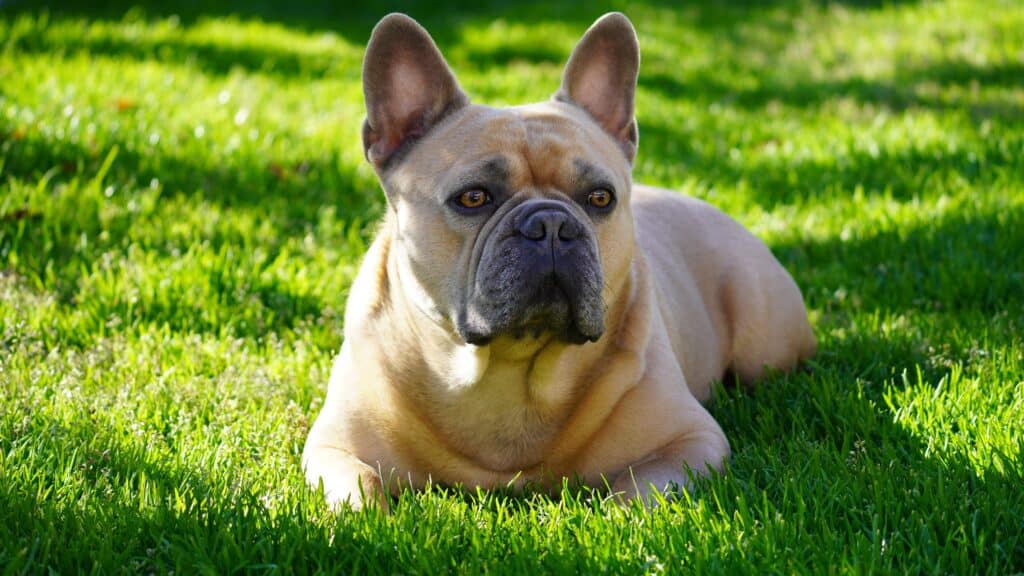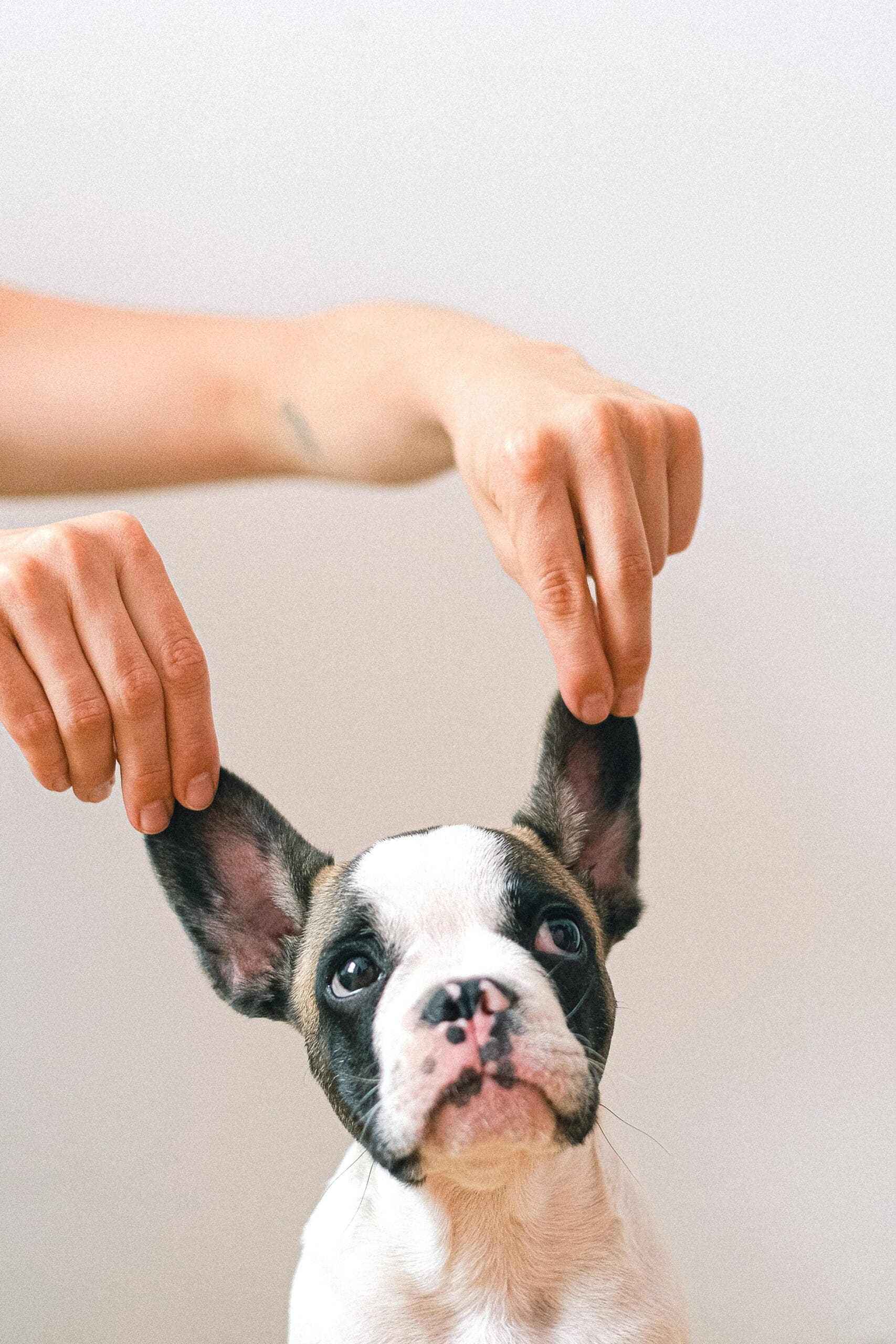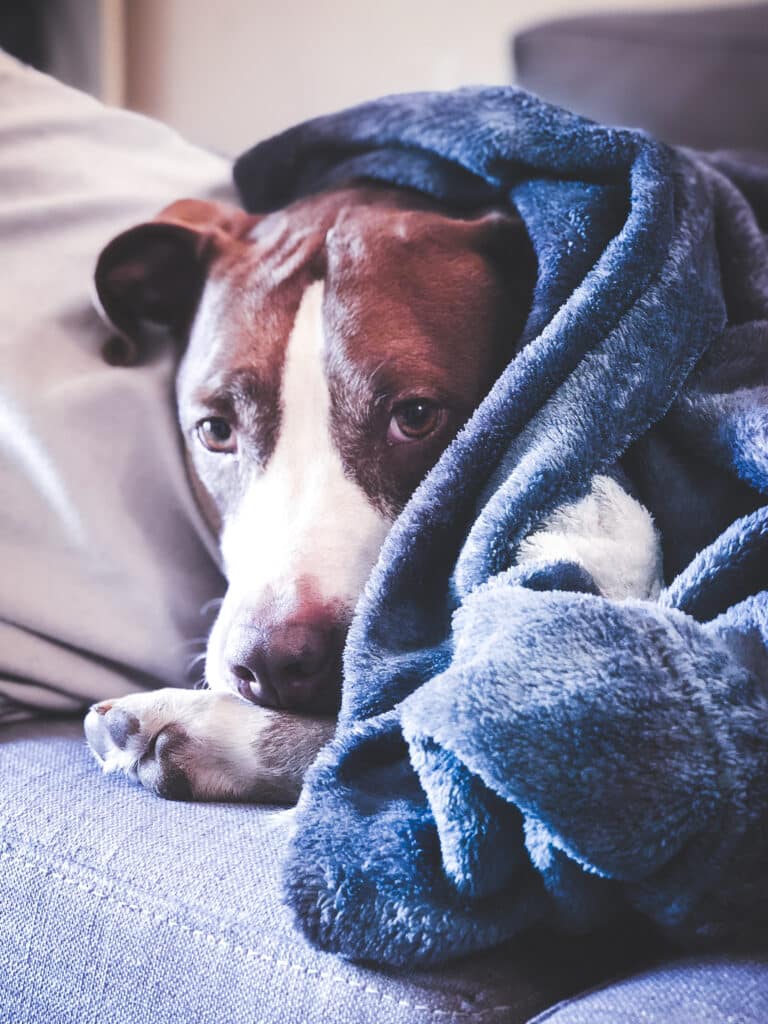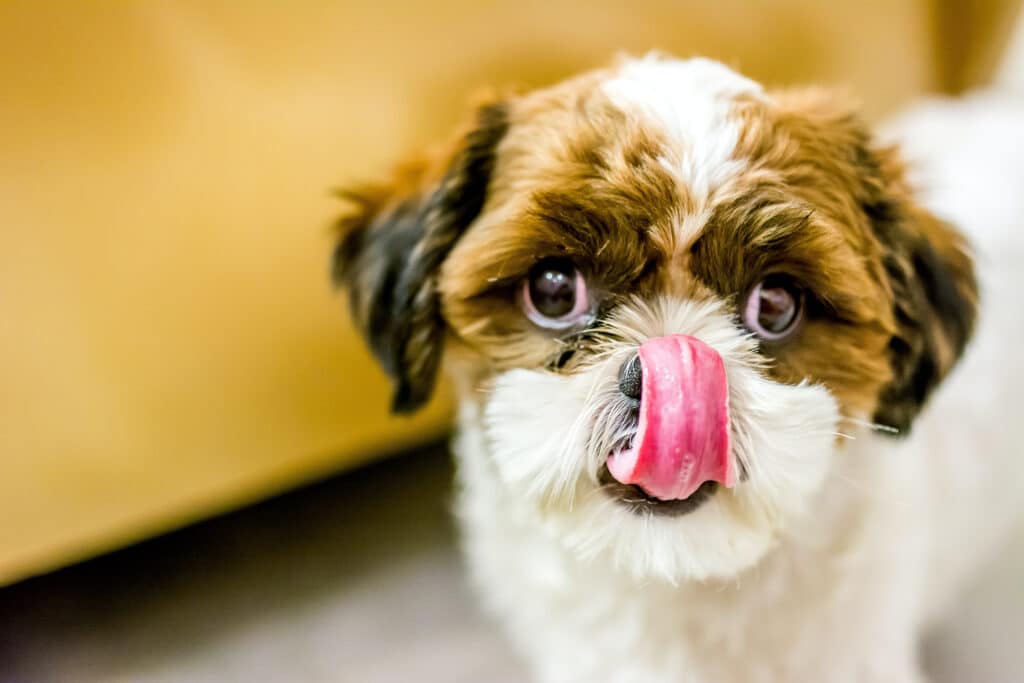Help! My Dog's Ears Stink: A Guide to Causes and Treatments
Does your dog’s ears stink? Are you left wondering what could be the cause and how to help them feel better? Have no fear, we’ve got the latest on all things stinky ear related. From causes of this such as yeast infection, bacterial infection, in fact whatever your dog’s ear infection cause, our guide has it all!
We know as pet parents you want nothing more than for your furry companion to live a happy and healthy life – free of any discomfort or pain. That's why we've devoted ourselves to giving you the information necessary so that your pup can go back to feeling like themselves in no time.
So if you’re ready to get rid of those bad smells and give your dog the relief they deserve, read on! Our comprehensive guide is sure to provide everything you need to know about dealing with canine ear odours and restoring balance in their lives.
Definition Of Ear Odour In Dogs

The smell of dog's ears is like the scent of a fresh-cut rose. It evokes memories, ignites curiosity and invites you to explore its depths. But when that same familiar aroma turns sour, it could be an indication that your beloved pup needs assistance with his ears. Ear odour in dogs can often be caused by yeast infections, ear mites or other issues that require attention from a veterinarian.
Thankfully there are ways for pet owners to help alleviate the issue without taking their furry friend into the vet. Regularly checking and cleaning your dog’s ears using a specifically formulated ear cleaner will go miles toward keeping them healthy — and smelling good! This simple step won't only target odours but also helps prevent bacteria and fungus build up in the ear canal, which can lead to more serious problems down the road.
Understanding what might cause unpleasant smells coming from your pup’s ears is essential if you want to keep him feeling comfortable and safe. Let's dig deeper into some common causes of this all too frequent problem so we can better understand how to address it at home or decide whether professional medical care is necessary.
Common Causes of Ear Odour in Dogs
When it comes to dog ear odour, there are a few common causes that can easily be identified. Dog ear infections and yeast build-up are some of the most frequent contributors to smelly ears in dogs. When your pup's ears become infected, they may produce more wax than normal which can lead to an unpleasant smell. Another potential cause is foreign bodies stuck inside the canal like grass seeds or dirt.
Mild odours emanating from your pup’s ears could indicate one of these issues whereas strong odours might point toward more severe problems such as infection or inflammation caused by parasites like mites. In any case, it's important for pet owners to promptly identify what's causing their furry friend discomfort so they can take action before things get worse!
In addition to addressing the underlying cause of ear odour, it's also important to look out for other potential problems associated with this condition such as hearing loss, pain and chronic irritation. Left untreated, these issues can develop into major health concerns — making prevention all the more crucial!
Signs And Symptoms Of Ear Odour In Dogs
Ear problems in dogs can be as unique as the breeds themselves. Dogs with floppy ears, such as Cocker Spaniels and Basset Hounds, are especially prone to ear odour due to their anatomy which prevents proper ventilation of the ear canal. Other common causes include yeast ear infections, wax build up and foreign objects like grass seeds stuck inside the canal.

No matter what breed your pet belongs to, it's important to look out for signs that indicate an issue is present — this includes strong odours coming from your pup’s ears, redness or swelling around them and excessive scratching at the affected area. It can also help to check regularly for excess amounts of dark brown waxy build up which could signal a problematic infection or inflammation.
If any of these symptoms appear, it's best not to delay treatment as prolonged exposure can make matters worse and even cause hearing loss or chronic irritation if left unchecked. With early detection comes effective solutions so don't hesitate to seek professional veterinary advice if needed!
Home Remedies For Treating Ear Odour In Dogs
When it comes to treating ear odour in dogs, there are a few home remedies you can try. For starters, if your pup has floppy ears, gently clean them with a cotton swab and a solution of hydrogen peroxide and water — this will help keep bacteria from building up inside the canal. Regular cleanings are also important for breeds with naturally self-cleaning abilities since wax build up is one of the main causes of odour problems. If needed, consult your veterinarian about using mild ear drops that contain anti-fungal or antiseptic ingredients as these can be quite effective when used sparingly.
It's critical to take steps now before the issue becomes more serious, so don't hesitate to reach out to your vet if you have any doubts or questions regarding treatment options. Over-the-counter medications may offer relief, but they should only be used after proper diagnosis by an experienced professional who can determine which ones won't further complicate matters!
Over-The-Counter Medications For Treating Ear Odour In Dogs
If a dog's ear odour persists, it may be time to consider over-the-counter medications. These are typically topical solutions that can help reduce inflammation and infection caused by bacterial or yeast infections. Dog owners should keep in mind though, that these products do not always work for chronic ear issues — if your pup is showing signs of head shaking or extreme discomfort, consult your vet immediately as this could indicate an underlying health issue.
When shopping for a product, look for those with anti-fungal ingredients such as miconazole nitrate and ketoconazole which have been proven effective in treating ear infections. Additionally, incorporating healthy habits like regular cleanings and providing plenty of fresh water will also go a long way toward keeping ears free from odours and other problems down the line.

How To Prevent Future Occurrences of Dog's Stinky Ears
Preventing future occurrences of smelly ears in dogs is one of the keys to a happy pup. To do this, regular ear cleanings perhaps carefully using a cotton ballshould be done at least once a month, more often if your dog has long hair or any sort of wax build up. If you notice that your pooch’s ears are excessively red, itchy, or giving off an unpleasant odour, then there could be signs of infection and it’s time to make a trip to the vet for treatment.
Food allergies may also play a role in recurrent ear problems; eliminating certain ingredients from your pet’s diet can help reduce inflammation and prevent further infections caused by harmful bacteria. Additionally, when cleaning around the outside area of the ear flap (the part visible on the sides), use only warm water and cotton balls as stronger chemicals can cause irritation and exacerbate existing issues. Keeping up with these simple steps will ensure that your pup’s ears stay healthy and free from odours for years to come!
Cleaning And Care Tips for Dog's Ears
Caring for your pup’s ears is a crucial part of keeping them healthy and happy. To start, use only soft cotton balls dipped in warm water to gently wipe away any dirt or wax build-up on the outside area of the ear flap. If there’s a lot of hair around this region, it’s best to clip it back so that you can get into all the nooks and crannies more easily. When cleaning inside the dog’s ear canal, however, never insert anything deeper than what you see; excessive pressure could result in pain or damage the eardrum.
It's also important to be aware that dog breeds with chronic ear problems are highly prone to secondary infections due to bacteria build up over time. In these cases, visiting your vet for medication may be a good idea as they will know exactly which products work best for your pet's particular needs. The right approach combined with regular cleanings will ensure that your pooch stays comfortable and odour-free!
Potential Complications from Untreated Dog's Stinky Ears
Left unchecked, your dogs’ ears can lead to a variety of complications. It's important to be aware that foreign objects like grass seeds or insects may become lodged in their inner ear and cause irritation. Additionally, cleaning on a regular basis is essential for preventing the build-up of wax and bacteria which can result in infection. If your canine friend has recurrent infections, it might be worthwhile investigating further with an ear cytology test. This will allow your vet to check if there are any underlying abnormalities such as presence of blood vessels in the middle ear space – something only visible under the microscope!
Finally, keeping a close eye on the condition of your dog’s ears is the best way to ensure they remain healthy and odour free. With proper care and regular visits to the vet when needed, you can help keep them happy and comfortable for years to come
Keeping on top of your dog's ear hygiene doesn't have to be difficult or time consuming – but it does need to become part of your routine if you want them feeling comfortable and smelling fresh!
Is There A Natural Way To Treat My Dog's Smelly Ears?
Do you have a pup whose ears are emitting an unpleasant odour? It could be due to wax, dirt and debris build-up or even bacterial infections. If so, there's no need to panic – it is possible to treat your dog's smelly ears naturally!

The first step in treating your pooch’s stinky ears is to get them thoroughly cleaned out by a vet. This will ensure that any underlying medical issues are addressed and the right cleaning solutions can be used on their delicate ear tissue. After the visit, you may want to find natural ways of keeping their ears clean at home too.
Some options include using hydrogen peroxide diluted with water (1:10 ratio) as an ear cleaner or mixing up some apple cider vinegar and warm water for regular maintenance washes. You can also look into buying specially formulated herbal ear drops from pet stores which help keep bacteria balanced within the canal.
No matter what method you choose for treating your four-legged friend’s smelly ears, consistency is key! Make sure you're regularly checking your pup's ears and performing gentle cleanings every week, or more frequently if needed. Doing this will not only reduce bad odours but also prevent long term problems such as infection and hearing loss caused by excess wax build up in the ear canal. So don't wait until your furry pal starts scratching his head – start taking preventive measures today!
Is Ear Odour In Dogs Contagious?
A pungent, unsettling smell can be a tell-tale sign of something amiss. In this case, it could mean that your beloved pup has an ear odour problem that you're likely wondering: is it contagious? The answer may surprise you.
On the surface, it would make sense for a dog’s ear odour to spread from one pooch to another; however, there are many factors involved in determining whether or not the scent will travel. With some careful inspection and understanding of the underlying issues causing your furry friend's olfactory issue, you'll be able to determine if their ears have been infected by a foreign body—or if they simply need a little extra attention at home.
Most cases of smelly ears stem from bacterial or yeast infections due to poor hygiene maintenance on behalf of their owners. While these infections can occur even with regular cleaning and grooming habits, neglecting proper treatment leaves dogs more susceptible to possible contagions. Unfortunately, some breeds also tend to suffer from allergies which contribute to increased levels of bacteria—and consequently an unpleasant aroma around their head region. To keep everyone safe and healthy, it's important then to assess each situation individually so as to rule out any potential risks of spreading infection between pets.
What Is the Best Way to Prevent Ear Odour In Dogs?
It's natural for a dog to have some odour in its ears, but when it becomes too much of an issue and starts to affect the animal’s quality of life, then something needs to be done. The best way to prevent ear odour in dogs is through proper hygiene and regular vet visits.
From regular cleaning with typical medications that ensure the delicate ear canal is not damaged, right up to making sure your pup has all necessary vaccinations before boarding or visiting other animals – there are lots of things you can do as an owner to keep their ears smelling fresh and healthy. Keeping on top of cleanliness will help reduce bacteria growth which leads to bad odours. It also pays off over time since prevention is always better than cure! Of course, if you notice any signs of inflammation or discharge from your pet’s ears, consult a veterinarian ASAP – early diagnosis leads to better treatment outcomes.
The bottom line: good hygiene practices and regular check-ups go a long way towards keeping our furry friends happy and healthy overall. A few simple steps today may save you costly medical treatments down the road – plus who doesn't want a sweet smelling pooch?

Are There Any Risks Associated with Using Over-The-Counter Medications to Treat Ear Odour In Dogs?
It's easy to think that treating your pup's ear odour with over-the-counter medication is a no-brainer. After all, when it comes to our dog’s health we just want them to be happy and healthy! But ironically, sometimes the best intentions can lead us down a path of unintended consequences.
Using OTC medications for pet odours may seem like an obvious solution – but before you reach for the bottle, consider the risks associated with such treatments. Ear infections are common in dogs and using OTC meds without consulting your vet could make matters worse. In some cases, this could even cause permanent damage to their sensitive ears if not done correctly or used too often. Additionally, there have been reports of adverse reactions happening after these products have been administered to pets. It’s important to note that any new product should always be tested on a small area first and monitored closely afterward.
In other words, while treating your dog's ear odour issues might seem like a straightforward endeavour at first glance – taking extra precautions beforehand is essential for ensuring their safety and wellbeing in the long run. Even though it may take more time up front than simply administering an OTC remedy, getting advice from a professional veterinarian will help ensure that you end up finding the best treatment option for your furry friend in the end .
Conclusion
It's important to remember that ear odour in dogs is not always a sign of an underlying medical condition. While it can be unpleasant, regular cleaning and natural treatments are often enough to keep your dog’s ears fresh.
But if the smell persists, don't hesitate to seek professional advice from your veterinarian about more effective treatment options for your pet. Over-the-counter medications may help, but they also come with risks – so make sure you understand what those are before you decide which option is best for you and your pup.
At the end of the day, it's all about prevention: keeping up with routine cleanings will go a long way toward ensuring my canine companion has healthy, sweet-smelling ears!

What is my dog’s ear canal like?
The inner part of a dog's ear is made up of several different parts, including the outer ear flap (pinna), middle ear cavity (tympanic bulla) which houses the eardrum, and the innermost area known as ear canal. This canal has an opening at both ends; one side leads into the head while the other opens outwards allowing air to pass through.
What are signs that my pup may have an infection in their ears?
Infections can cause pain, itching, discharge from the ear and redness or swelling around it. If your pooch starts shaking their head more often than usual or scratching at their ears too much, these could be signs of chronic ear infections. Additionally, if there’s a foul odour coming from either one or both ears then this might indicate something else is going on inside!
What are potential causes of recurrent infections or smelly ears?
Several factors can contribute to recurring infections such as allergies caused by environmental irritants like pollen or dust mites. In addition, water trapped in your pup's ears after swimming or bathing could create a breeding ground for bacteria leading to unpleasant odours and possible inflammation. Lastly, foreign objects lodged in their ear canals such as grass seeds may also lead to discomfort and bad smells so make sure you check regularly!
How Often Should I Clean My Dog's Ears?
The first thing to consider when it comes to ensuring your dog has clean ears, is how often you should actually clean them! It can be easy to forget about this important activity, but regular ear cleaning for your pet is essential for their health and comfort. Once a week is usually enough and ensures that your pet will have healthy ears.



